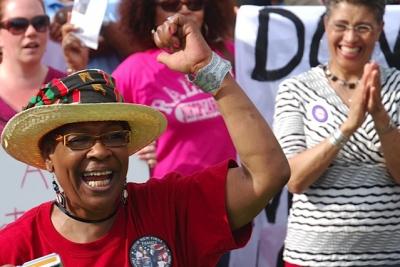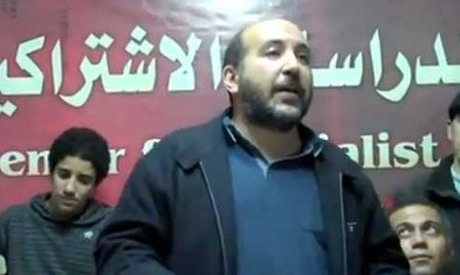United States: In 2013, workers tried new angles and alliances

North Carolinians mobilised against an anti-worker (and anti-woman, anti-civil rights) legislative assault by bringing thousan
Luxemburg, Lenin, Levi: Rethinking revolutionary history
Part 1. John Riddell. Parts 2 and 3 below.
Reminiscences of Nelson Mandela and the US anti-apartheid movement
Ike Nahem at the memorial for Soweto martyrs.
See also "Cuba and the South African anti-apartheid struggle".
Democratic Left Front: Together, a new South Africa is possible
Democratic Left Front salutes the National Union of Metalworkers of South Africa special national congress
By the Democratic Left Front, South Africa
Ukraine: Russia or the European Union? Reject a choice between ‘lesser evils’
By Aleksandr Buzgalin
Egyptian revolutionary socialist: ‘We are facing a counterrevolution’

Rana Nessim and Rosemary Bechler interviewed Sameh Naguib (pictured above), a leading member of the Revolutionary Sociali
Thailand: Yingluck sleepwalks into the trap set by anti-democratic forces

Yingluck Shinawatra (centre).
By Giles Ji Ungpakorn
South Africa: NUMSA calls for new movement for socialism, end to ANC alliance

Delegates to NUMSA's special congress greet suspended COSATU general secretary Zwelinzima Vavi (centre).
United States, Iran, Russia, Syria and the geopolitical shift: Anything for the region’s oppressed?

Russia's foreign minister Sergey Lavrov (right) and
India: Fearless freedom for women won’t be stopped by the wall of reaction

Protesters from the All India Progressive Women's Association in Delhi, December 22-23, 2012.
Egypt's revolution deepens in the face of state repression

Haitham Mohamedain (pictured above) is a prominent member of the Egyptian organisation the Revolutionary Socialists and
United States: The electoral opening for the left

Kshama Sawant.
By Jason Netek, Chicago